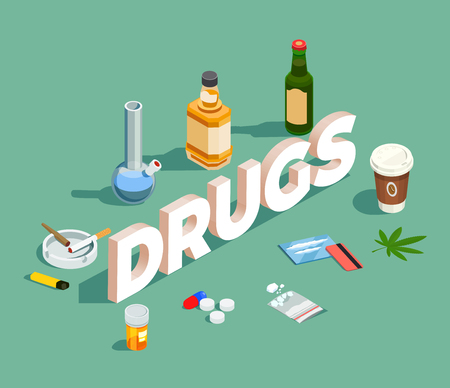
سازمان بهداشت جهانی از بدو تاسیس، نقش مهمی در ارتباط با مسئلۀ مواد روانگردان در جهان، در سیستم سازمان ملل متحد ایفا کرده است. اقدامات سازمان بهداشت جهانی به منظور مقابله با مصرف داروهای روانگردان در سطح جهان را می توان در ابعاد زیر بررسی کرد:
*پیشگیری از مصرف مواد و کاهش آسیب پذیری و خطرات
*درمان و مراقبت از افراد مبتلا به اختلال مصرف مواد
*پیشگیری و مدیریت آسیب های ناشی از مصرف مواد
*دسترسی به داروهای کنترل شده و
*نظارت و ارزیابی
هدف شمارۀ 3.5 سازمان ملل متحد، توسعۀ پایدار و هدف شمارۀ 3 دولت ها را به تقویت پیشگیری و درمان سوء مصرف مواد ملزم می کند. چندین هدف دیگر نیز ارتباط ویژه ای با مسائل مربوط به سیاست های ناظر به مواد و ارتباط آن با حوزۀ سلامت دارد، به ویژه هدف شمارۀ 3.3، که به پایان اپیدمی ایدز و مبارزه با هپاتیت ویروسی اشاره می کند. هدف شمارۀ 3.4، با موضوع پیشگیری و درمان بیماری های غیرواگیردار و ارتقاء سلامت روان؛ هدف شمارۀ 3.8، دستیابی به پوشش بهداشتی جهانی؛ و هدف شمارۀ 3.b، با اشاره به ایجاد دسترسی به داروهای ضروری مقرون به صرفه از جملۀ دیگر اهداف مهم این سازمان اند.
در آوریل سال 2016، سی امین نشست مجمع عمومی سازمان ملل متحد (UNGASS)، پیشرفت در اجرای اعلامیۀ سیاسی 2009 و برنامۀ اقدام در زمینۀ همکاری بین المللی در راستای استراتژی یکپارچه و متوازن برای مقابله با مشکل جهانی مواد مخدر را مورد بررسی قرار داد و دستاوردهای آن را ارزیابی نمود. در قطعنامۀ S-30/، مجمع عمومی، سند نتیجۀ نشست ویژۀ مسئلۀ جهانی مواد مخدر را با عنوان “تعهد مشترک ما برای برخورد موثر و مقابله با مشکل مواد مخدر در جهان” تصویب کرد. مجمع عمومی سازمان ملل متحد تغییراتی در گفتمان کلی سیاست های دارویی ایجاد کرد تا ابعاد بهداشت عمومی و حقوق بشر را در خصوص مسئلۀ مواد مخدر در سطح جهان برجسته کند و تعادل بهتری میان کاهش عرضه و اقدامات بهداشت عمومی به دست دهد.
:منبع
https://www.who.int/health-topics/drugs-psychoactive#tab=tab_3
Since its creation, WHO has played an important role within the UN system inaddressing the world drug problem. WHO activities to counter the world drug problem can be presented under the following main dimensions:
*prevention of drug use and reduction of vulnerability and risks;
*treatment and care of people with drug use disorders;
*prevention and management of the harms associated with drug use;
*access to controlled medicines; and
*monitoring and evaluation.
Target 3.5 of UN Sustainable Development Goal 3 sets out a commitment by governments to strengthen the prevention and treatment of substance abuse. Several other targets are also of particular relevance to drug policy-related health issues, especially target 3.3, referring to ending the AIDS epidemic and combating viral hepatitis; target 3.4, on preventing and treating noncommunicable diseases and promoting mental health; target 3.8, on achieving universal health coverage; and target 3.b, with its reference to providing access to affordable essential medicines.
In April 2016, the thirtieth Special Session of the UN General Assembly (UNGASS) reviewed the progress in the implementation of the 2009 Political Declaration and Plan of Action on International Cooperation Towards an Integrated and Balanced Strategy to Counter the World Drug Problem and assessed the achievements and challenges. In resolution S-30/1, the General Assembly adopted the outcome document of the special session on the world drug problem entitled “Our joint commitment to effectively addressing and countering the world drug problem”. The UNGASS marked a shift in the overall drug policy discourse to highlight the public health and human rights dimensions of the world drug problem and to achieve a better balance between supply reduction and public health measures.
Resource: https://www.who.int/health-topics/drugs-psychoactive#tab=tab_3


